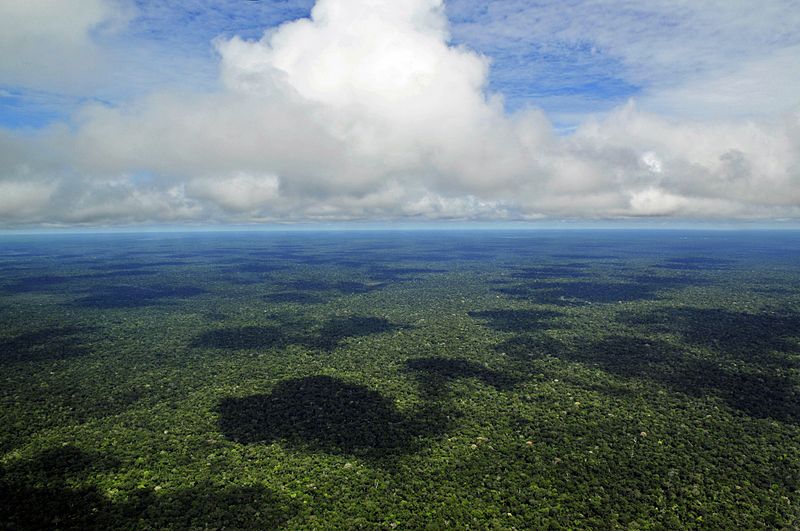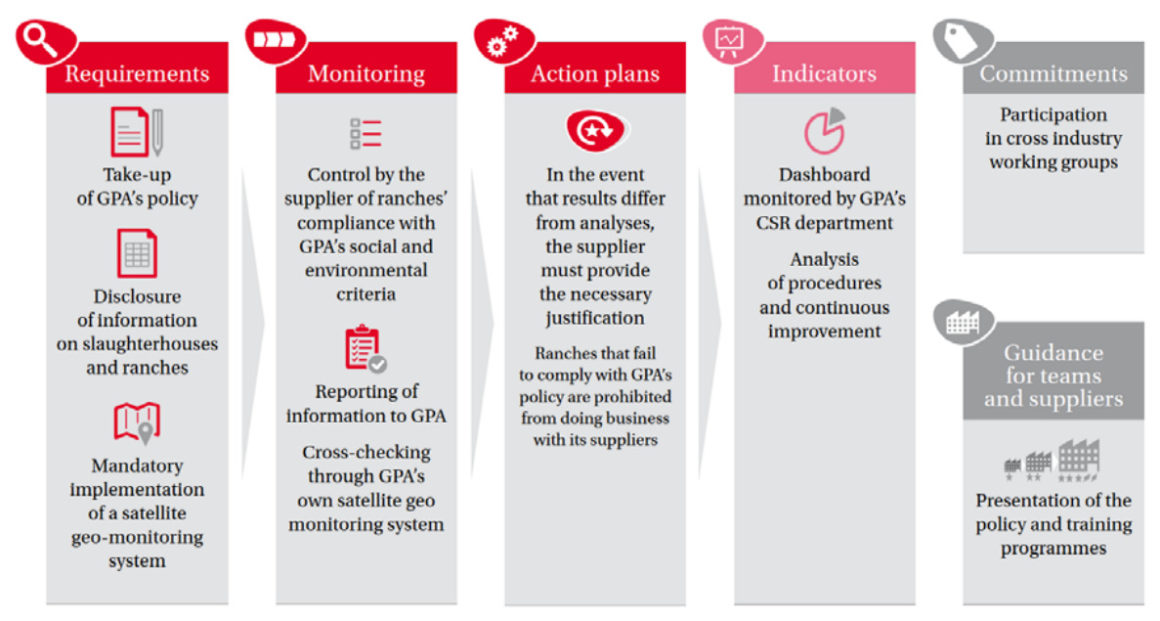To preserve biodiversity, protect local populations and combat climate change, Casino Group is committed to fighting against deforestation linked with cattle breeding in Brazil and Colombia, while taking into account the complexity of the supply chains.
Casino group, through its branches in Latin America, has been actively fighting against deforestation for many years. Indeed, our Brazilian branch GPA implements a consistent and rigorous policy for the control of the origin of beef delivered by its providers. GPA’s responsible purchasing policy of beef relies on a listing process and strict control of beef providers.
Control policy for GPA’s beef suppliers
This process aims at identifying the direct origin and ensures compliance with the following social and environmental criteria:
- that cattle breeding is not linked with the deforestation of natives biomes including the Amazonian Biomes;
- that farming is in no way linked with forced labour ;
- that farming is in no way linked with child labour ;
- that farming is not subject to embargo by the Ministry of Environment due to environmental violations ;
- that farming is not linked to the invasion of indigenous lands and/or the invasion of protected lands ;
This policy is applicable to all our Brazilian providers of fresh and frozen meat delivered to our shops in Brazil and coming from Legal Amazonia.
It is based in particular on the implementation of:
- a process of traceability and transparency : all GPA providers must declare slaughterhouses (tier 1) and farms (tier 2) having provided the cattle with which they work and log this information (CAR – Property Register) into a traceability tool ;
- a monitoring process by geo monitoring : monitoring of cattle purchasing via a geo monitoring system allowing to check its conformity with the 5 criteria defined above of GPA’s zero deforestation policy was put in place.
The providers who don’t comply with the policy may see their contract suspended until they comply and can prove they can apply the policy accurately. Should any compliance issue be observed during the monitoring process, the farm will be banned and will not be allowed to sell its products to GPA.
Moreover, as regards indirect farms, GPA supports and gets involved in the VISIPEC project in order to go up the supply chain and reinforce the monitoring process. This project is in an experimental phase with NWF and GPA is the first distributor involved in the pilot.
Given the stakes, we consider necessary, for the actions to be efficient, to define common monitoring rules among all providers/distributors, public authorities and civil society. That’s the reason why GPA supports the measures aiming at improving the monitoring actions of the cattle breeding supply chain in Brazil, and participates in:
- A Working Group on indirect providers (GTFI), an exchange platform on the challenges set by the indirect chain of cattle breeding ;
- A process of yearly monitoring of the commitments of the National Pact in favour of eradicating forced labour (InPACTO) which GPA signed in 2005,
- GTPS – Brazilian Roundtable on Sustainable Livestock, which brings together actors in the supply chain to strengthen sustainable livestock;
- to the Brazilian Coalition on Climate, Forests and Agriculture.
For more information, go and visit GPA and Assaí website.
As regards Colombia, 25% of beef purchases are made in Colombian supermarkets, and 75% on local markets.
Grupo Éxito is an active member of the Tropical Forest Alliance 2020 whose aim is to ensure that the products sold are not linked with deforestation in Colombia. In 2017, Grupo Éxito contributed to developing the first offer of beef products which are “Rainforest Alliance” certified.
In 2019, as part of an alliance between the International Center for Tropical Agriculture, SEAT, Solidaridad, Climate Focus, and thanks to the tool “Global Forest Watch”, Grupo Éxito committed to monitoring at 100 % the farms of its direct providers of beef by 2021, according to the zero deforestation criteria and with the implementation of audits which could lead to corrective action plans as defined in the following document available on the website of Grupo Éxito.
Aware of the stakes and risks, as well as the complexity of supply chains in South America, we continue to strengthen our actions and policies, with the help of all the relevant stakeholders, to fight against the risks of deforestation.





